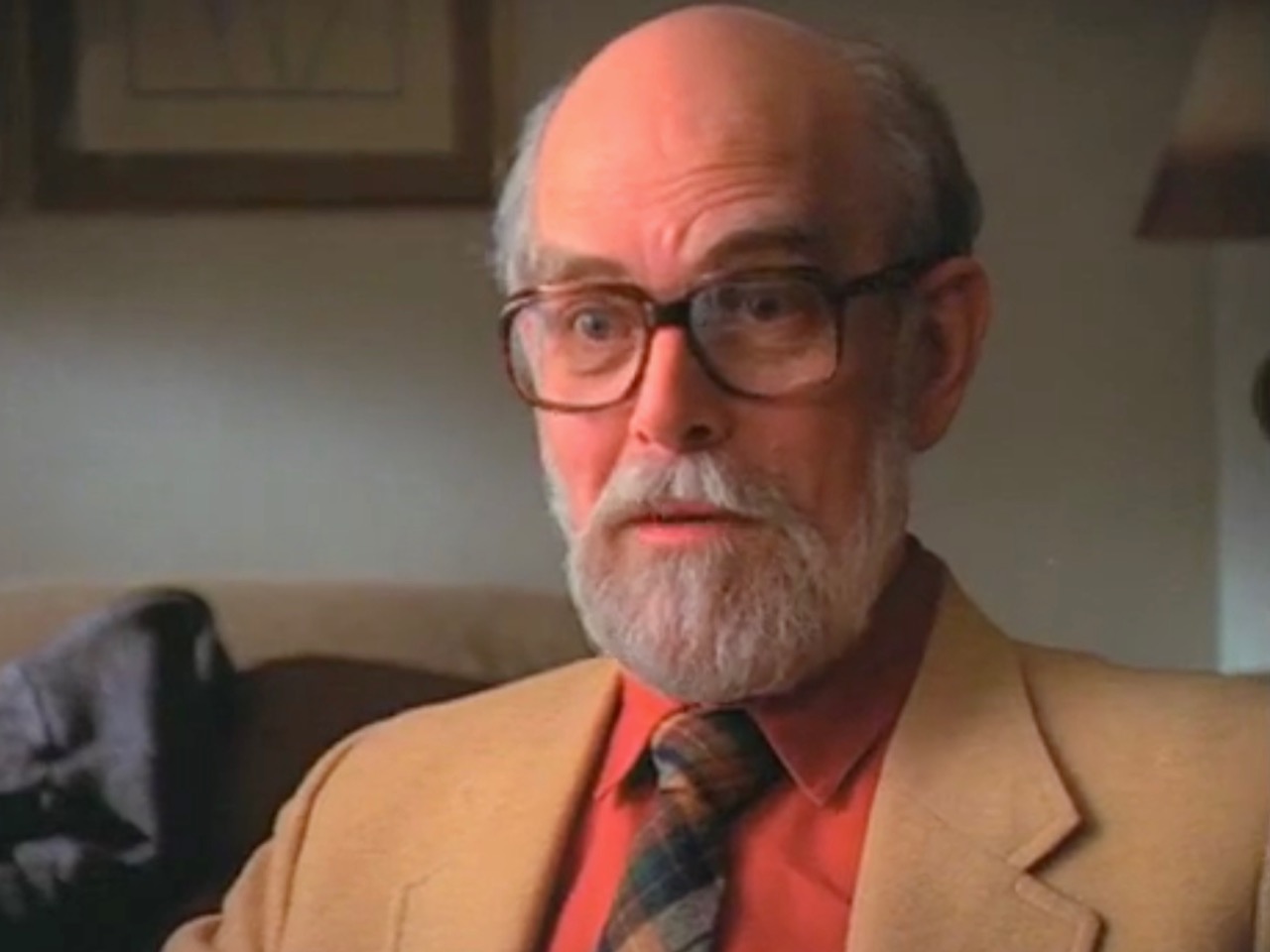Marker, take six. [clapboard] One of the stories my dad used to tell with a lot of feeling, as he recalled it, was of driving with my mother down a rural North Carolina road. And he noticed a field that was being plowed very close to the road. But there was something strange about the plowing scene. The man was holding down the plow and guiding it through the furrows. But apparently the couple had lost their mule or their horse and had none anymore, because a woman was pulling the plow instead of the horse or mule. And it was very, very difficult work. He got close, about 20 feet to her, and saw that sweat was just pouring off of her. She was exhausted, but that was the only way they could farm that year, apparently, was, without a horse or mule, was for her to play that part. And he was always very moved by that story and thought it really set the tone
and example for what was happening in a lot of places in the South with such serious poverty. The Missouri Roadside demonstration was probably an early sit-down in terms of people getting off of the farms and saying, "we're going to be by the side of the road, we're going to be where people can find us and see us and not be hidden anymore." And so people came off their farms, moved out, found any kind of shelter, put up tents, put blankets and sheets over, shrubbery, whatever they could for shelter, and camped for several weeks. And it was crucial to feed those people. So many people got in their cars and moved along to try to help bring various kinds of supplies to them.
They had nothing with them. They came as they were from their homes and were camping without any kinds of supplies, any kind of bathroom facilities or food. So people brought them those kinds of supplies and there was quick exchange and people saying hello and thank you and then moving on to other places. I can remember one time as my mother and dad and I drove in our old Chevy down Highway 66 on one of these relief efforts that we stopped at a very weathered old barn. It was set back, I guess, 100 feet from the highway. And out of this beaten up old barn came tons of children. And I was about three or four at the time and had been riding in the back seat of the car in my usual seat, but perched on a carton of Vicks Vapor Rub.
And what we were carrying in the Kester car was many cartons of Vicks Vapor Rub because that was a stand-by for everybody in those days to rub on the chest or rub around the nose when people had colds and various kinds of infections. So our job was to deliver the Vicks Vapor Rub, and we did. And one time I got very tired of being little and unable to move and stretch. So I got out of the car and went in with my folks to deliver some Vicks. My mother had said, don't stay and you can't play because we've got to get going and there's so many illnesses that none of us can afford to get sick. We're going to have to keep going so we'll let you out and you can run and just greet the children, but then we're going to need to go to the next place. So I ran in and my folks were carrying cartons and so was I. And all these children poured out who were very thin, very raggedy, in a very damp, gray day as I recall. But they were laughing and they were glad to see us and there was immediate trust.
And so I remember handing my box over to some children and my parents handed theirs over to some grownups and we went on to the next place. But I've always had an indelible memory of the barn, of those children pouring out, of their thinness, of runny noses in the days of no kleenexes, their friendliness. And they were just acting like all children. But living in terrible circumstances. So it was an early lesson for a young child to learn that people could help people, but also that some people could be very mean to other people and cause them to live in very grim and sad circumstances.
 Oscar Fendler Discusses Landlords, Tenant Farmers, and Sharecroppers (1992)
Oscar Fendler Discusses Landlords, Tenant Farmers, and Sharecroppers (1992)
 John Twist Discusses Poverty and Hunger (1993)
John Twist Discusses Poverty and Hunger (1993)
 David Goeppinger Discusses Economic Devastation in the South (1992)
David Goeppinger Discusses Economic Devastation in the South (1992)
 John Twist Discusses the Agricultural Adjustment Act and Its Consequences (1993)
John Twist Discusses the Agricultural Adjustment Act and Its Consequences (1993)
 Former Sharecropper George Stith Discusses the Agricultural Adjustment Act (1992)
Former Sharecropper George Stith Discusses the Agricultural Adjustment Act (1992)
 Oscar Fendler Discusses Evictions of Tenant Farmers and Sharecroppers (1992)
Oscar Fendler Discusses Evictions of Tenant Farmers and Sharecroppers (1992)
 George Stith Describes the Start of the Southern Tenant Farmers’ Union (1992)
George Stith Describes the Start of the Southern Tenant Farmers’ Union (1992)
 Nancy Neale Discusses the Formation of the Southern Tenant Farmers’ Union (1993)
Nancy Neale Discusses the Formation of the Southern Tenant Farmers’ Union (1993)
 Nancy Neale Talks About the STFU’s Decision to Be Interracial and Nonviolent (1993)
Nancy Neale Talks About the STFU’s Decision to Be Interracial and Nonviolent (1993)
 Miller Williams Discusses a Violent Response to the Union from White Southerners (1993)
Miller Williams Discusses a Violent Response to the Union from White Southerners (1993)
 Nancy Neale Discusses the STFU as a Model for Change to Come (1993)
Nancy Neale Discusses the STFU as a Model for Change to Come (1993)